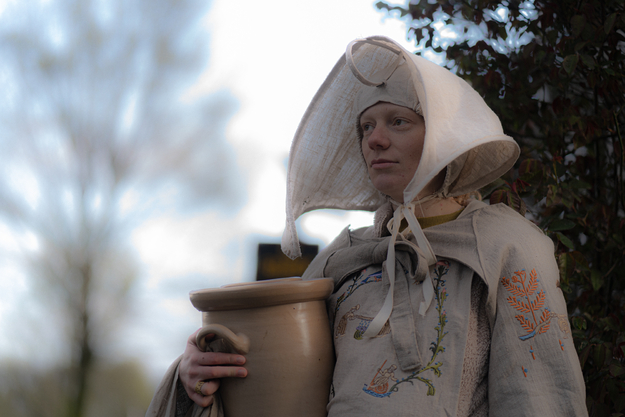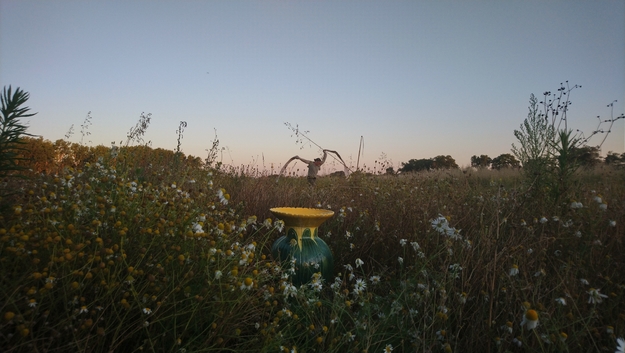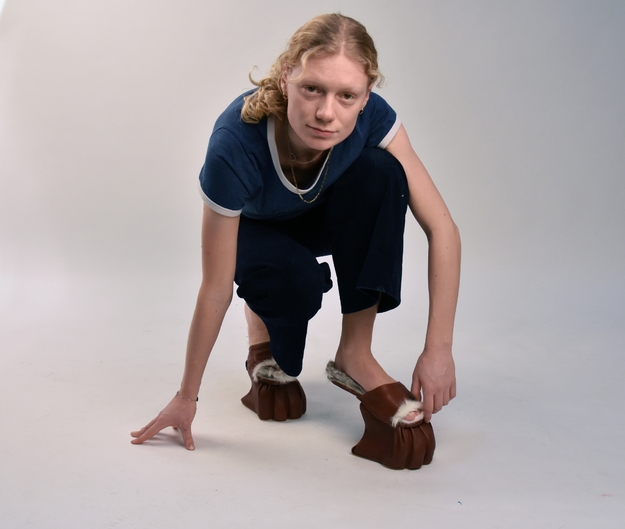“Elficological know-how”, is a project based on research done by elficologists into the diet of elves and other folkloric creatures: morning dew, bramble wine, slug slime liqueur, fern bread, lichen butter and more. Elven food has no limits, offering a creative vision on how we, as humans, consume and harvest the earth's resources.
In addition to its pleasant fantasy, “elficology” does not refer only to the search for elves. According to the creator of the neologism, Pierre Dubois elficologist himself, it is defined as "the ecology of the soul". For him, it is an approach that "wanders in worlds that are created as they are explored". Therefore, the magical thinking of this project aims to raise awareness about the ecosystems that surround us, fighting against the ambient feeling of “eco-anxiety” by creating an original dialogue between man and nature, giving birth to what can be described as "eco-fairy".
The project developed within this residency offers “fictional workshops” on the harvesting of elven ingredients. For each ingredient a know-how is developed in order to harvest it, thus including equipment, garments, gestures, songs...so that it becomes part of an imaginary culture with fictional rites.
A know-how has a certain value as it is synonymous with acquiring particular, even rare, skills, allowing the actor of this know-how to be an expert in his or her field and to participate in its preservation, notably through transmission. The creation of a culture based on irrational data as does « Elficological know-how » emphasizes the value of stories and folklore, beyond the simple fact of knowing whether they are true or not.
While in the Netherlands elves are not really part of the picture, in Iceland 54% of Icelanders either believe in them or say it’s possible they exist, 2% claim to have seen them. Many of the latter tell of sharing their tables or even their beds... Some places on the island are designated as protected reserves because they are considered inhabited by elves. The elf then becomes a means of protecting a place where the use of folklore is in favour of the environment and of species whose existence is not to be proven.
In this constant balance between rationality and irrationality, fiction and reality, poisoning and edibility, the project challenges our ignorance and certainties. For some elements, such as the fern bread or the dish of birds’ tongues, are based on practices that actually existed, one by starving peasants in times of famine, the other by the Empress of Russia Catherine II (1762-1796) or even by the roman emperor Aulus Vitellius (15-69 AD); making historical reality a parent of fiction.
Using the rationality of the design process in the creation of many know-how I ask whether something has to be true to have value and become part of “culture”. In this regard, who decides the value of a specific knowledge area ?
I am often asked if I believe in these stories. As a designer, I need to step back to see the bigger picture of what I'm working on, therefore I don't attempt to believe it, but what I do believe is the need to believe.
Want to know more?
Join the Elficological know-how: Morning Dew Harvesting on 10 September, 17 September and 19 September.


